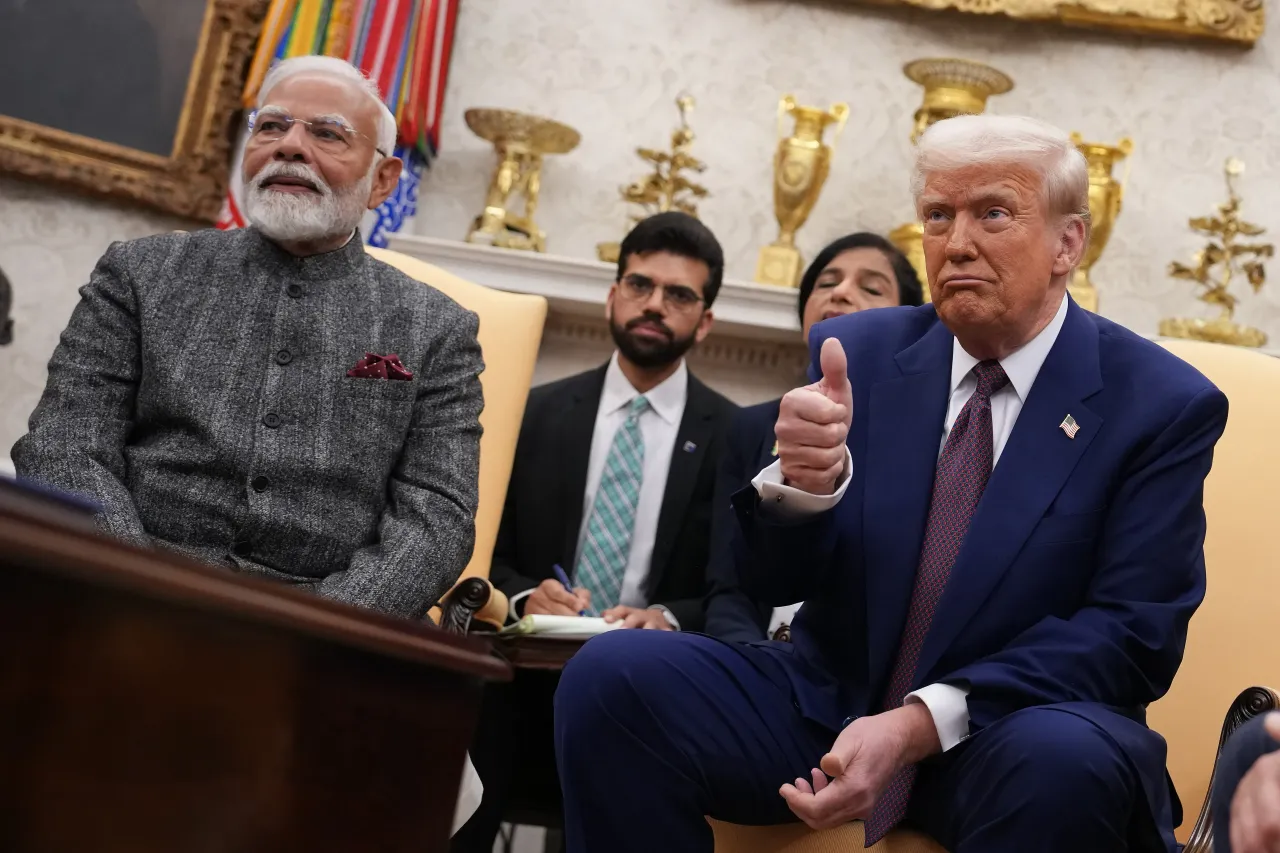Advertisement|Remove ads.
Cautious Reset: India, US Reopen Trade Negotiations After Months Of Strain

India and the United States will resume trade talks in New Delhi on Tuesday, marking the first in-person engagement since negotiations collapsed earlier this year. The renewed dialogue comes weeks after President Donald Trump imposed punitive tariffs of up to 50% on Indian exports in response to New Delhi’s continued purchase of Russian oil.
Washington had earlier accused India of undermining sanctions and profiteering from Moscow’s war in Ukraine, sparking a downturn in bilateral ties.
The American delegation, led by Brendan Lynch, Assistant Trade Representative for South and Central Asia, arrived in New Delhi on Monday night. Senior Commerce Ministry official Rajesh Agarwal will lead India’s team during the day-long discussions. Officials on both sides said the meeting reflects a cautious attempt to revive talks, which had stalled after five earlier rounds.
Renewed Ties With Russia and China
While the two countries had committed to finalizing the first phase of a trade pact, negotiations broke down over Washington’s demands for greater access to India’s agricultural and dairy markets, sectors India considers non-negotiable. The imposition of additional tariffs in late August further complicated the process, prompting India to strengthen ties with Russia and China.
Last month, Prime Minister Narendra Modi made his first trip to China in seven years to attend the Shanghai Cooperation Organisation (SCO) summit.
Mixed Messaging?
While President Trump and Prime Minister Modi exchanged friendly messages on social media, renewing hopes of breaking the trade deadlock, white house trade adviser Peter Navarro has doubled down on his criticism of India, accusing it of unfair trade practices and funding Russian oil purchases through its exports.
Earlier this month, Trump expressed optimism about concluding a deal with India while Modi voiced hope that the discussions would “unlock the limitless potential” of the partnership.
However, on September 15, Navarro said India maintains “very high tariffs and non-tariff barriers” and argued that profits from trade with the US were being used to buy Russian oil, which in turn funded Moscow’s weapons.
Officials in New Delhi emphasized that despite the setbacks, both sides remain keen to find common ground.
For updates and corrections, email newsroom[at]stocktwits[dot]com.














/filters:format(webp)https://news.stocktwits-cdn.com/Getty_Images_2197860201_jpg_c4f2083335.webp)
/filters:format(webp)https://news.stocktwits-cdn.com/jaiveer_jpg_280ad67f36.webp)
/filters:format(webp)https://st-everywhere-cms-prod.s3.us-east-1.amazonaws.com/large_stock_rising_resized_f17852d7aa.jpg)
/filters:format(webp)https://st-everywhere-cms-prod.s3.us-east-1.amazonaws.com/unnamed_jpg_9dff551b50.webp)
/filters:format(webp)https://news.stocktwits-cdn.com/large_Getty_Images_2250993932_jpg_77e7b26c88.webp)
/filters:format(webp)https://news.stocktwits-cdn.com/large_Block_Inc_logo_displayed_on_smartphone_screen_6065fd32bb.webp)
/filters:format(webp)https://news.stocktwits-cdn.com/large_tesla_robotaxi_jpg_ade25faaed.webp)
/filters:format(webp)https://news.stocktwits-cdn.com/large_Robotaxi_Tesla_jpg_209f017098.webp)